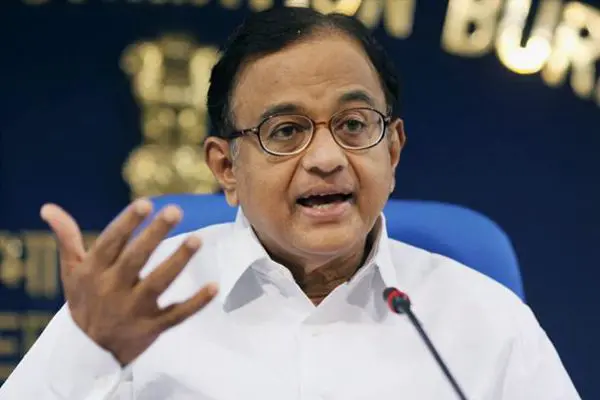India's former federal minister P Chidambaram has said there were "grave doubts" about the involvement of Mohammed Afzal Guru, a Kashmiri convicted in the 2001 Parliament attack and that the case was "perhaps not correctly decided".
"There were grave doubts about his involvement (in the conspiracy behind the attack on Parliament) and even if he was involved, there were grave doubts about the extent of his involvement. He could have been imprisoned for life without parole for rest of his natural life," he said," a local newspaper - The Economic Times on Thursday quoted Chidambaram as having said.
"But being in government you cannot say the court has decided the case wrongly because it was the government that prosecuted him. But an independent person can hold an opinion that the case was not decided correctly."
The minister's remarks has come three years after Guru was hanged and at a time when his anniversary has triggered controversy.
Chidambaram was India's home minister when Guru's mercy plea was rejected by the previous United Progressive Alliance government led by Congress Party in 2011.
Guru was hanged two years later in 2013 at New Delhi's Tihar jail. Many in India and Indian-controlled Kashmir believe Guru was denied fair-trail.
Chidambaram gave an interview to the newspaper on whether the courts had reached the correct conclusions in the Guru's case and also whether execution was the appropriate penalty.
Earlier this month an event commemorating Guru's hanging anniversary at India's prestigious Jawaharlal Nehru University (JNU) turned into a controversy after authorities said anti-India slogans were raised during the gathering.
Indian police charged six student leaders at JNU with sedition and arrested four people including a former Delhi University lecturer S A R Geelani in the case.
"I think it is possible to hold an honest opinion that the Afzal Guru case was perhaps not correctly decided," Chidambaram said.
The senior Congress leader also described sedition charges against JNU students "outrageous".
Despite growing criticism from various quarters, India's rightwing Bhartiya Janta Party (BJP)-led government is perusing the case against students vigorously and seems to be adamant on punishing what they describe as "anti-national elements".
 简体中文
简体中文





